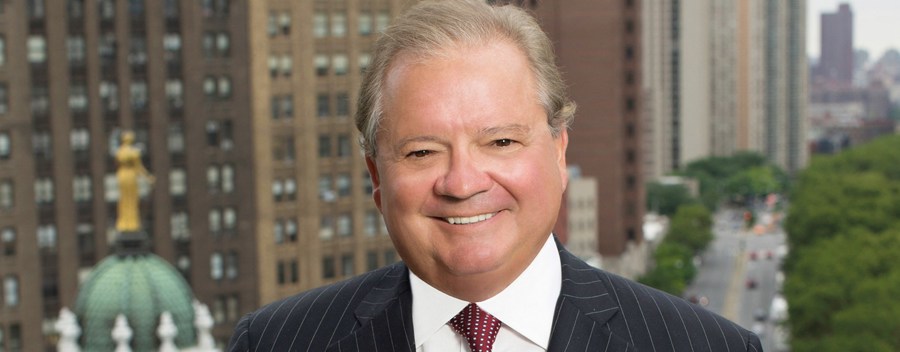
We the People
On a beautiful sun-splashed September day in Washington, D.C., it was an exquisitely memorable experience to be part of the large crowd celebrating the opening of the new Smithsonian National Museum of African American History and Culture. Words alone cannot capture the museum’s full impact, from the metal lattice exterior walls that recall iconic figures once serving as symbolic guardians protecting African villages, to the large welcoming front porch and the exhibition halls filled with artifacts, art, and displays that are vibrant, moving, and often painful and horrifying reminders of the struggles, as well as contributions and triumphs, of African Americans. The exhibits include the gown worn by the incomparable Marian Anderson when she sang to a vast crowd from the steps of the Lincoln Memorial. The overwhelming experience is even more poignant because this new citadel of humanity and enduring courage is built near the very place within the shadow of the U.S. Capitol where people were once sold into slavery. This is an extraordinary national museum that all Americans should visit if they have the opportunity.
This was a day to reflect on the distance the United States has traveled toward racial justice and the difficult journey that still remains if we are to truly become a nation where equality, justice, and freedom are the blessings of all. As President Obama explained at the opening ceremony, it is a time for people to “step back, understand, sympathize, empathize, and be part of the solution.” President George W. Bush, who signed legislation authorizing the new museum 15 years ago, said that “a great nation does not hide its history. A great nation faces its flaws and corrects them.”
I am very proud to be a member of a law school community where so many of our graduates, students, and faculty work toward a better future. After all, being unsatisfied with the status quo and hungering for positive change is what academic institutions, and even more so law schools, should be all about. Throughout last year, for example, our community admirably rose up to address intelligently and vigorously a tsunami of disturbing events in communities and on campuses across the country and abroad. Once again, this year our news is filled daily with alarming stories of discord, violence, and bigotry. As I write, we are in the closing days of a contentious and unprecedented presidential election that has brought into sharp relief deep divisions in our nation as well as beliefs and ideas that are inimical to our democratic republic and the principles that make our nation a beacon of hope in the world.
While it may be easy to be discouraged by the many challenges we face, we need only look at the depth and breadth of the activity in the global Brooklyn Law School community to find reason for optimism for our nation and for our world. Every day I speak with students who are performing valuable service work, providing much-needed legal assistance to less-advantaged individuals, and contributing to the flourishing small business and startup community in Brooklyn. Their spark of energy and idealism is a tonic to any kind of pessimistic outlook on the future. The work of students in the BLS/EXI Innocence Clinic to help free a wrongly convicted man from prison is but one example of this tremendous impact.
In this issue of Brooklyn Law Notes, you will read more about the impact of our students and faculty on society on multiple fronts. Bennett Capers, the Stanley A. August Professor of Law, writes about the current state of policing in minority communities, the consequences of which we see in the news all too frequently, and proposes a more innovative use of technology that has the potential to make policing more effective and egalitarian. In this issue’s Closing Arguments, Professor Jocelyn Simonson examines the power of “community bail,” an emerging reform effort aimed at ultimately ending money bail, a practice that has the effect of punishing criminal defendants for being poor. Our newest faculty members, Professors Susan Hazeldean, Christina P. Skinner, and Alex Stein, are already eminent in their fields and bring to the Law School a wealth of scholarship and expertise that builds on our faculty’s national reputation for excellence in scholarship and teaching.
In these pages, you will meet current students and recent graduates who are making a difference through our groundbreaking Public Interest/Public Service (PipS) program, the two-year fellowship program directed by Professor Stacy Caplow that provides valuable practical legal training and experience working with nonprofit organizations and government agencies. We were one of the first law schools on the East Coast to have a program like PipS, which now serves as a model for other law schools. PipS builds on our legacy of public service, which we celebrated at the annual Public Service Awards ceremony and the 30th anniversary of the Edward V. Sparer Public Interest Fellowship Program, led by Professor Liz Schneider, who has taught, mentored, and inspired generations of students.
When Supreme Court Justice Sonia Sotomayor visited us in April, she praised the students, faculty, and graduates who continue to honor and renew our distinctive legacy and place in history. One cannot read the stories in this issue—or spend a day at the Law School—without seeing that legacy in action and coming away with a strong sense of optimism about the power of law to make a positive difference. The people of Brooklyn Law School are a testament to our capacity to meet our current national and global challenges in thoughtful and meaningful ways, find solutions to pressing problems, and show us the way forward. Each of us can take pride in our part in this magnificent story.
Nick Allard
Joseph Crea Dean and President